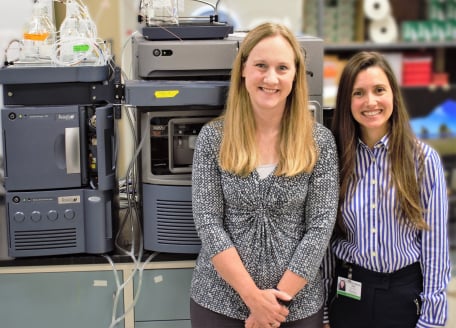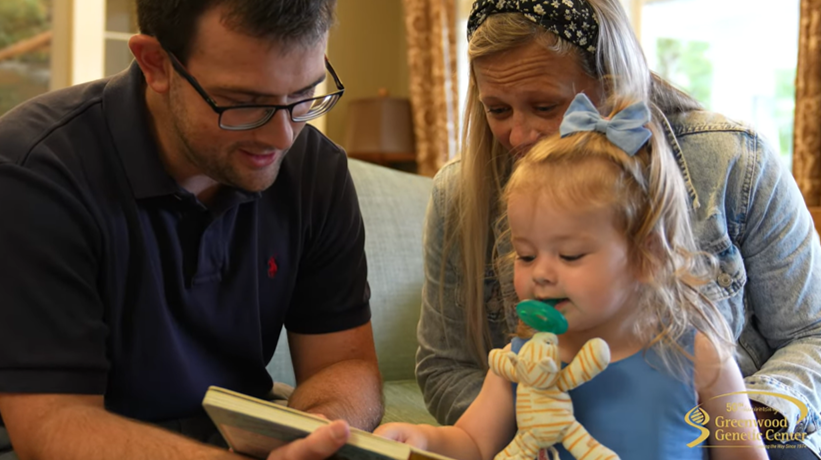
Mucopolysaccharide (MPS) disorders are a rare group of conditions caused by an enzyme deficiency that prevents the cells from breaking down large sugars into smaller components that can be recycled. The accumulation of these sugars, called glycosaminoglycans (GAGs), leads to a damaging buildup in the cells. A patient’s symptoms will vary depending upon exactly which GAG is in excess, but often include both physical and neurological symptoms.
MPS disorders are typically diagnosed by analyzing the amount of GAGs present in the patient’s urine or blood. Current treatments for MPS disorders involve the use of a synthetic enzyme to replace the one that the patient is missing or a stem cell transplantation. Several clinical trials are underway for novel therapeutic approaches for MPS.
“When the treatment is effective, we see a decrease in urine and/or blood GAGs, showing us that the treatment is working,” said Francyne Kubaski, PhD, staff scientist in GGC’s Biochemical Genetics Laboratory. “That’s called a biomarker – it’s a quantitative measurement of how well a treatment is working, or if it’s working at all.”
Kubaski adds, “However, because MPS disorders often have neurological symptoms, and it’s harder to get that drug into the brain, measuring GAGs in the blood or urine may not accurately reflect the impact of the treatment on the brain.”
To determine if treatment is reaching the brain, GGC’s Biochemical Lab was awarded a $50,000 grant by the National MPS Society in 2022 for a yearlong project.
“We are using two different methodologies to measure GAG levels in the cerebrospinal fluid (CSF) of patients who have an MPS disorder as well as pediatric and adult controls. CSF is the fluid that bathes the brain and spinal cord, so it more accurately reflects the impact of the disease and treatment on brain cells,” said Laura Pollard, PhD, Director of GGC’s Biochemical Genetics Lab and lead scientist on the project. “By using two different methods, we can compare the results and understand the strengths and limitations of each method. This data will then be made available to the MPS research community to advance pre-clinical studies and clinical trials.”
